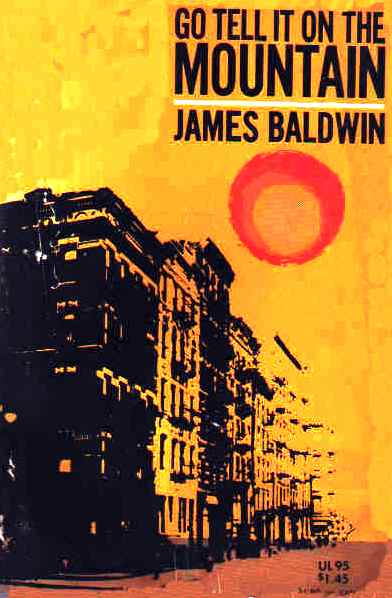This content is being reviewed in light of recent changes to federal guidance.
Break It Down: Go Tell It on the Mountain
 “Break It Down” is a HBW Literary Blog initiative that strives to offer critical interpretations of song lyrics, excerpts from novels, and poems.
“Break It Down” is a HBW Literary Blog initiative that strives to offer critical interpretations of song lyrics, excerpts from novels, and poems.
This week, an excerpt from Go Tell It on the Mountain, a novel written by James Baldwin, was analyzed by Kenton Rambsy. The excerpt comes from Chapter 1.
*Hold cursor over underlined text to display comments
Go Tell It on the Mountain analysis—Chapter 1
For John excelled in school, though not, like Elisha, in mathematics or basketball, and it was said that he had a Great Future. The narrator, John, may not be athletic, but he is very well-spoken and performs well in terms of grades at school. For his teachers and peers, John is a model student who is sure to succeed in terms of being a role model and/or leader in his adulthood. He might become a Great Leader of His People. John is still black. He will be very successful, but he will be limited to interacting with “his people” which translates to being a leader for “black people” and not “white people.” John was not much interested in his people and still less in leading them anywhere, but the phrase so often repeated rose in his mind like a great brass gate John is so often encouraged by people that he is smart and will be a success later in his life that he believes being a “leader of his people” will liberate him from those forces in his life that he feels are oppressive. Still, John is not really concerned with representing his race. He is more motivated by living life on his own terms—even though, he may not be to sure what those terms are at the present moment in his life. , opening outward for him on a world where people did not live in the darkness of his father’s house, did not pray to Jesus in the darkness of his father’s church, where he would eat good food, and wear fine clothes, and go to the movies as often as he wished. John seems to equate success with material possessions. This offers a glimpse into the problematic nature of capitalist culture. Freedom from John’s vantage point involves lavish clothes, food, and houses. In this world John, who was, his father said, ugly, who was always the smallest boy in his class, and who had no friends, became immediately beautiful, tall, and popular. John is conflicted by two visions of the world. In one world, he lacks all the characteristics that it takes to be successful. His father serves as a source of anger, frustration, and confusion. In the other world, John is very popular because he posses all of the characteristics of a “successful” person. Again, both worlds are characterized by outward appearances—such as world possessions, physical features, and social status. People fell all over themselves to meet John Grimes. He was poet, or a college president, or a movie star; he drank expensive whisky, and he smoked Lucky Strike cigarettes in the green package.